Upgrades in technology are changing the way we build. We have spoken heavily about adopting composite materials in infrastructure projects, mainly thanks to their sustainability, OHS and customisability benefits, but what other technology adoptions are we seeing?
One major uptick is the increased usage of smart monitoring devices, especially in major cities where real-time tracking of transport or utilities, security, and safety are crucial.
Due to the requirement for more accurate tracking and management for transparent and effective operations, these smart devices are being used for quicker, more accurate monitoring of networks.
Transmitting a radio signal from a small device under the ground can be challenging. Traditional concrete and steel pit covers, while heavy-duty, will interfere with the radio signal, rendering the devices useless and preventing live monitoring.
And therein lies the challenge.
In-road rated covers with radio transparency.
Two leading government-operated organisations in Melbourne, Greater Western Water and Yarra Trams, recently engaged with Terra Firma to tackle this challenge.
Terra Firma’s ThruBeam E400 – pit lids are heavy-duty and, thanks to their composite materials, are transparent to radio frequencies, making them uniquely suited to the challenges faced by Greater Western Water and Yarra Trams.
These heavy-duty lids are perfect for utility infrastructure because they are gas-tight, watertight, lightweight, easy to inspect and offer total ease of access.
The Greater Western Water story
Water leakage is a significant problem for water authorities. It can lead to a significant loss of water, which not only affects the supply of water to customers but also has financial implications for the water authority. In addition, water leakage can cause damage to infrastructure, roads, and buildings, and can also result in environmental damage. Identifying the location and extent of leaks can be challenging and can go undetected for long periods, compounding damage and losses.
To address the problem Greater Western Water has invested in new technology to detect and monitor leaks, as part of a program of proactive maintenance.
This investment was intended to provide real-time information to determine the location and extent of leaks before any interruption of service to their customers. They found some cutting-edge technology, however there was another problem, how to get the radio systems to work from within a pit.
Problems encountered:
- Disrupted radio transmission: transmission data can be easily disrupted if the transmission waves are blocked by heavy infrastructure or moving water.
- High-trafficked area: Greater Western Water’s mains are found in high-trafficked areas in the city, which are being used by vehicles and pedestrians.
- Wet areas: underground areas contained high volumes of moving water that made the surrounding areas at risk of getting wet, potentially disrupting, or breaking equipment.
- Urgent need for real-time updates: Melbourne water needed real-time updates to check the flow of the water, and to detect any leaks or blockages.
The solution was to insert IOT connected devices into the watermains to get live flow meter transmissions to send data to their head office in Footscray. However, the pits that required the installation of the devices to help track and determine this information were in high-trafficked areas in the inner suburbs of Melbourne.
The conventional option was to run a trench from the pit across the road to the side of the pedestrian area and install a ductile line or concrete infield lids to complete the project. However, the installation and subsequent downtime would have made this project nearly impossible.
Successfully Trialled with Immense Success
After hearing about a successful smart cover installation with VicRoads, Melbourne Water engaged with Terra Firma to trial the installation of an radio transparent composite lid over the pit at Anderson’s Underpass in Sunshine.
The trials involved testing the electronic signalling system and found that they could get real-time flow data sent to their head office in Footscray. Once that was determined, they engaged Terra Firms to supply lids for 10 locations across the city for their Greater Western Water project.
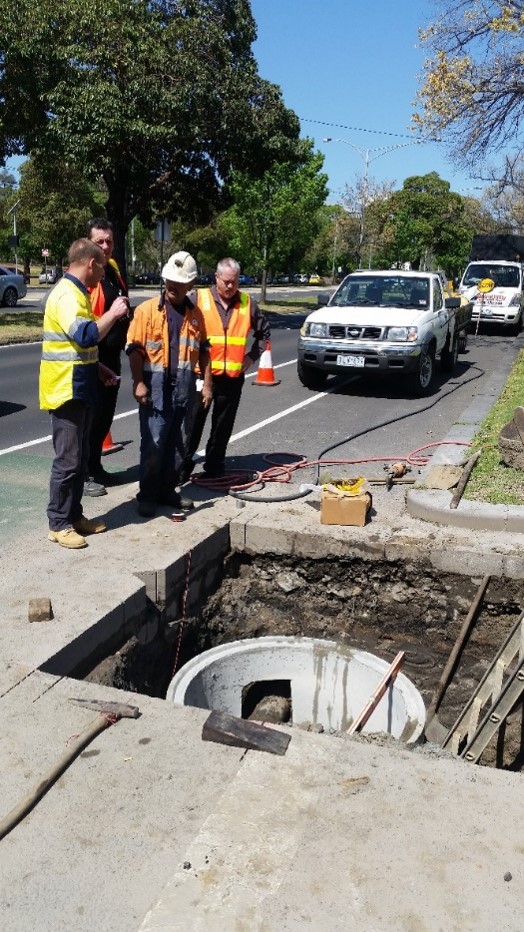
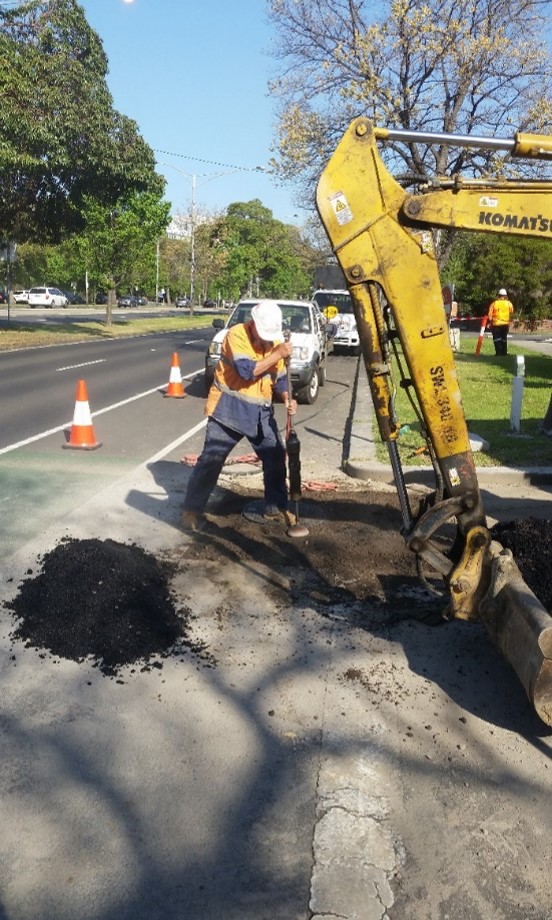
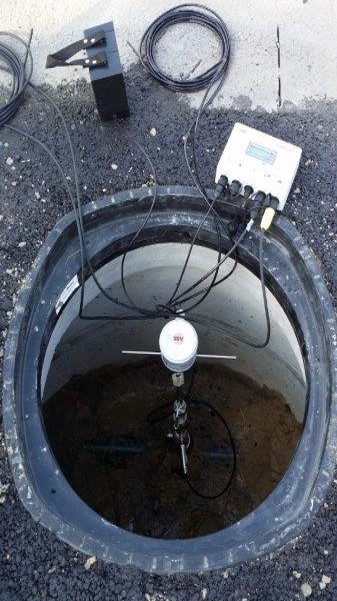
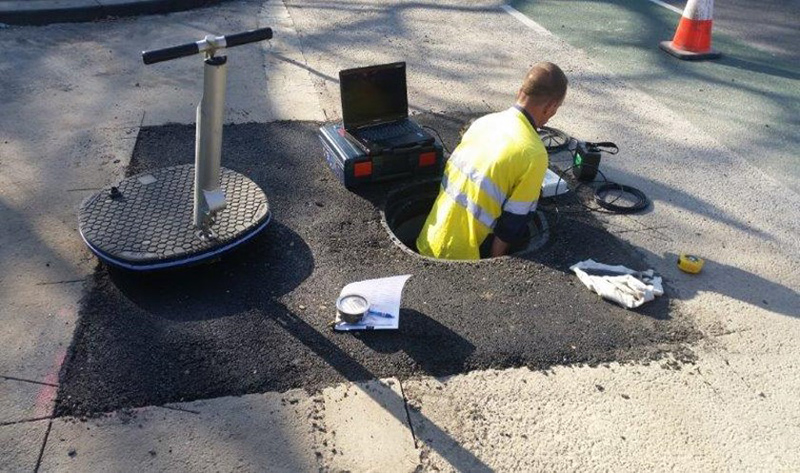
Installation of ten Terra Firma ThruBeam E400 composite covers in and around Melbourne CBD.
The Yarra Trams story
The Melbourne tram network is the largest in the world and has had numerous upgrades and ongoing maintenance to ensure that it can keep up with the high usage of the system.
Preston Workshops is a heritage-listed building and heavy maintenance facility for the Melbourne tram network. Trams are returned to the terminus, stored for next-day use or housed during maintenance.
As part of the networking improvement update with Yarra Trams, all trams were fitted with their unique RFID system and readers to help track the movement and location of tram vehicles. This real-time data will help to determine if there are any issues with the network.
However, the upgrade presented challenges regarding system interference and the need for heavy-duty sustainable materials to protect RFID readers. In addition, conventional pit lids were unsuitable for the project due to its materials.
Problems encountered:
- Disrupted transmissions: The heavy-trafficked areas, along with the type of infrastructure, there was a high risk of transmissions being unable to be sent.
- Heavy-trafficked area: Tram lines run throughout heavy-trafficked areas and include heavy duty vehicles, other pedestrian vehicles, and foot traffic.
- Heavy vehicles: Trams and other pedestrian vehicles are heavy, and the areas around tram lines are used frequently.
- Need for ongoing real-time updates: Because of the large flow of traffic and their subsequent riders throughout the network, any issues and disruptions need to be transmitted immediately.
To keep Yarra Trams and their passengers up to date in the event of network disruptions, Yarra Trams engaged with Terra Firma to install their heavy-duty, lightweight lids throughout the network.
Our ThruBeam E400 lids proved to be the perfect solution for in-road installations around heavy vehicles and high-trafficked areas. The lids were placed directly under the tram lines with a signal system inside the pit, transmitting data in real time.
The benefits of this approach met the objective of signal transmission and ease of access. With a specialised seal breaker, the lids can be opened in seconds for maintenance, if required. The robust and durable materials used for this project are ideal for long-term infrastructure.
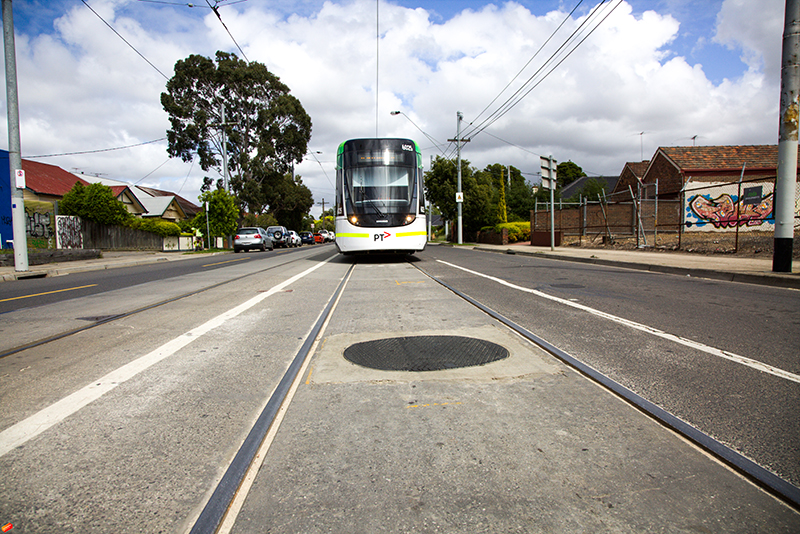
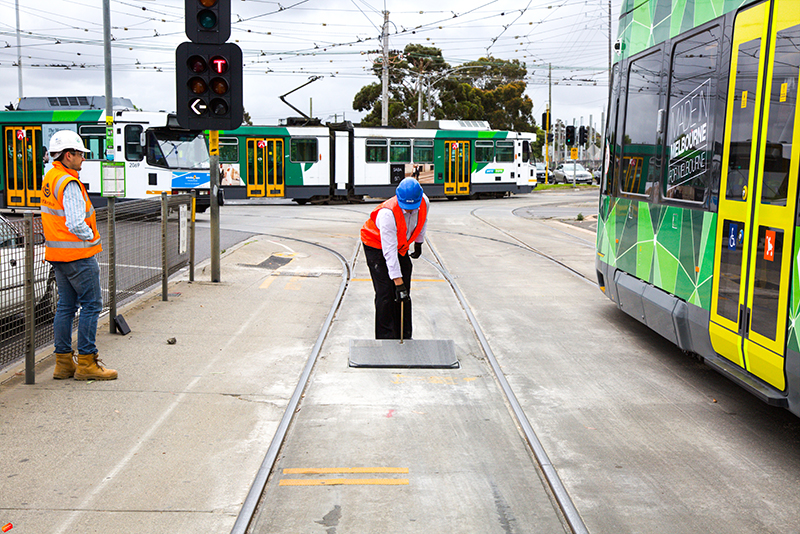
Immediate and ongoing results with Terra Firma
Our ThruBeams E400 are the perfect solution for utility projects looking for longevity in high-trafficked areas. Our Australian-made composites are perfect for all types of infrastructure and a range of civil work experts, and we can develop custom lid and cover solutions for any challenge.
If you’d like to know how smart covers could benefit your next project or would like to discuss our composite solutions more broadly, you can contact us here to start a conversation.
Share this
Discover the Terra
Firma difference
Learn how we can help support your next project